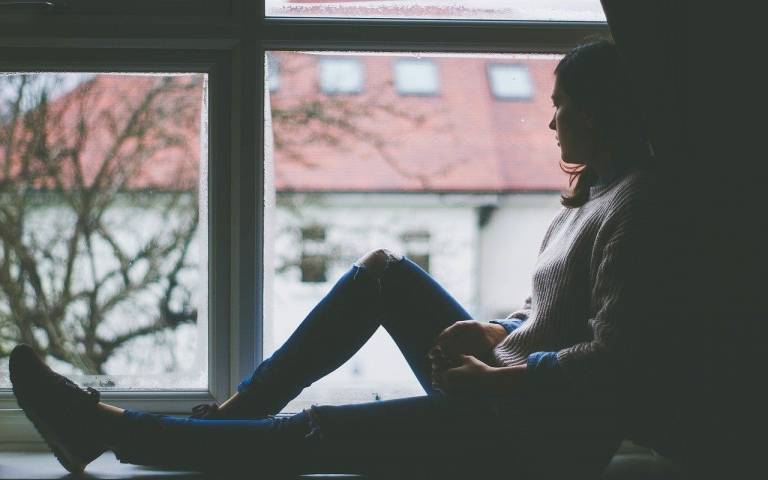Younger adults report lowest levels of wellbeing in lockdown
30 April 2020
Wellbeing among all age groups is lower than usual levels during lockdown and is lowest for those aged 18-29, according to UCL’s Covid-19 study, the UK's largest study on adults’ wellbeing and mental health during the coronavirus epidemic.

The study, which is funded by the Nuffield Foundation, was launched a month ago, has over 80,000 participants and reports on how adults feel about the lockdown, government advice, feelings of loneliness and wellbeing, and their mental health.
Participants were asked to rate their life satisfaction during the past week using the ONS wellbeing scale, which asks respondents about how satisfied they are with their life, using a scale from 0 (not at all) to 10 (completely).
Those aged 18-29 have tended to report levels of around 5 or under compared to 5.5 to 6.5 for those aged over 60. By comparison, a similar ONS wellbeing scale last year showed that satisfaction scales were around 7.5 on average for the population at the end of March 2019.
Lead author Dr Daisy Fancourt (Associate Professor of Epidemiology, UCL Epidemiology & Health Care) said: “Wellbeing is noticeably lower than the average levels we have seen for the past 12 months and it also remains more volatile amongst younger adults and for people living alone.
“It’s possible that young people’s lives have been particularly affected by the lockdown, and that they are more likely to be living away from family and be experiencing specific concerns over factors such as employment.”
The study also shows that younger adults are communicating online more than other age groups and overall three out of four adults are engaging in video calls or other messaging services of at least 30 minutes a day.
Respondents answered questions about communication by focusing on the last weekday so the results present a snapshot of activity rather than a complete picture of phoning/messaging behaviours across the whole week. Overall, the study shows there has been a slight decrease in online communication over the past month.
The full UCL Covid-19 study report shows breakdowns by age groups, gender, income, and whether people are living alone or have reported diagnosed mental health conditions.
Andrew Steptoe, Professor of Psychology and Epidemiology (co-author, UCL Institute of Epidemiology and Health Care) added: “This study has a substantial number of participants being tracked weekly. Although this study is not representative of the population, the data are weighted to match the population on key demographics such as age, gender, ethnicity, education, and country of living. This gives us a snapshot of how people in the UK are feeling and coping during the lockdown and allows us to track changes over time as the situation evolves.”
The study is still recruiting and participants can sign-up anonymously at www.marchnetwork.org/research
Links
Image
Credit: Window View/9091 images Source: Pixabay
Media contact
Rowan Walker
Tel: +44 (0)20 3108 8515
Email: rowan.walker@ucl.ac.uk
 Close
Close

